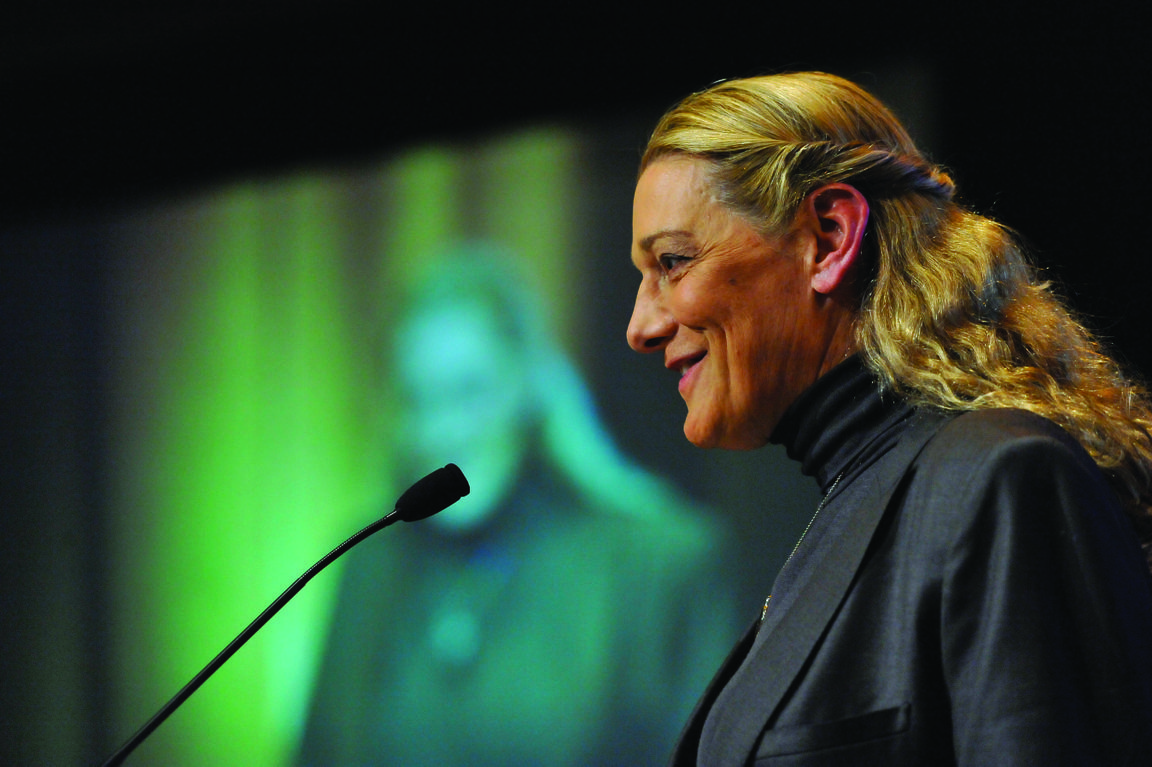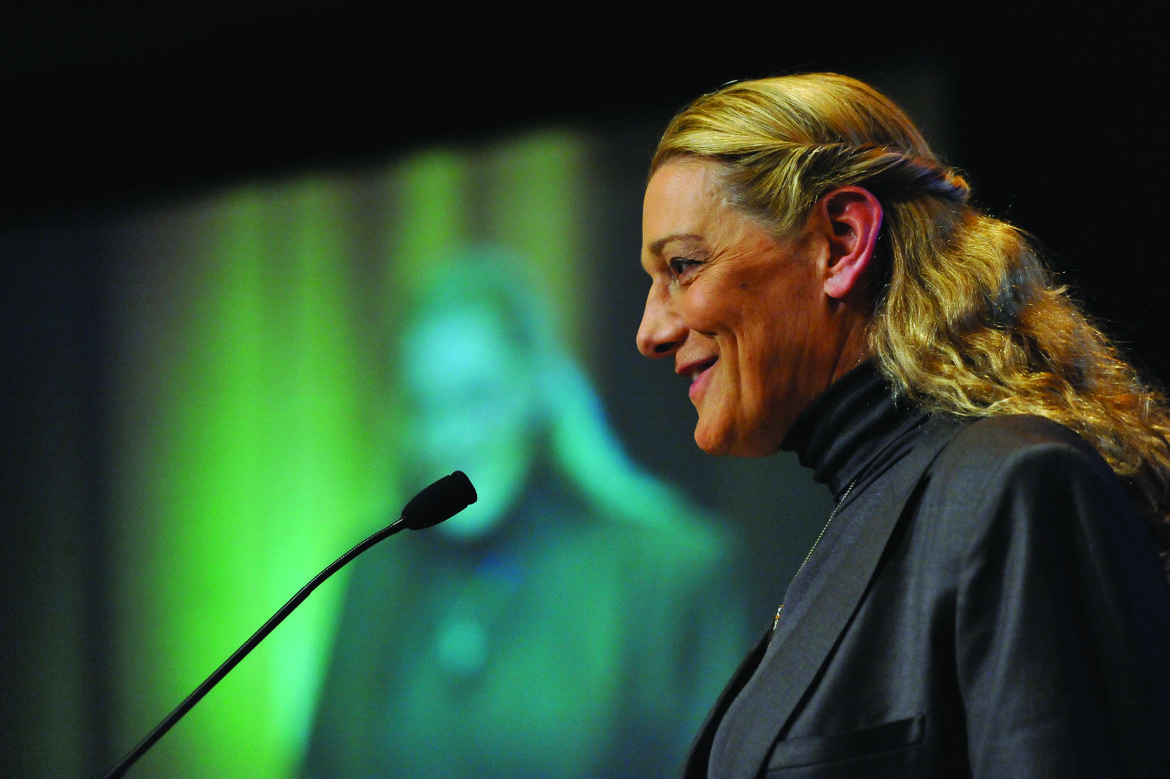Martine Rothblatt often pilots her helicopter to meetings. Maybe that’s not surprising, since the UCLA alumna devised the first all-electric helicopter, one of her many engineering achievements that could change our world.
Rothblatt ’77, M.B.A. ’81, J.D. ’81 is a powerful advocate for transhumanism, a philosophy that envisages harnessing smarter technology to enhance human longevity and happiness. It’s a quest that has seen her dig into the mysteries of the human genome, create the first satellite radio service and challenge traditional notions of gender.
In 2018, Rothblatt was awarded the UCLA Medal for her work as a scientific big thinker, groundbreaking lawyer and company creator, from the satellite radio service SiriusXM to the biotech pioneer United Therapeutics.
Rothblatt has made an impact on the way the world lives and thinks, but she says her most important accomplishment was creating United Therapeutics in order to find a cure for her daughter’s rare lung disease.
Rothblatt, who underwent gender reassignment surgery in the early ’90s, is an outspoken advocate for transgender rights. “My challenges don’t come anywhere near what 99% of trans people have encountered,” she says. “I have had enormous good fortune.”
A triathlete, medical ethicist, futurist and biotechnologist, Rothblatt has been married to her wife, Bina, for more than 30 years, and they have four children. “One night, an M.B.A. classmate invited me to accompany her to a networking event for minorities in business,” she remembers. “At that event I met Bina, the love of my life.”
Like many forward thinkers, Rothblatt often ponders how technology can help sci-fi ideas become a reality — like the Robinson R44 helicopter that she modified in 2016. “A helicopter is definitely an example of transhumanist technology. The way it can hover is something that helicopter pilots never get tired of,” she says. “But something as simple as a pair of eyeglasses — which makes the wearer’s life infinitely better — is also transhumanist technology.”
Rothblatt’s next quest? “I have my eye on making small differences that can help people. For example, one of United Therapeutics’ projects is manufacturing organs — hearts, lungs, kidneys — so that when they fail, we can make new ones using a patient’s own cells.”
“To have these strong, brilliant women as role models meant everything to me.”
As a Bruin, Rothblatt learned from professors who had an important influence on her life, including the late Andrea Rich ’65, M.A. ’66 Ph.D. ’68, who was her communications professor.
“Dr. Rich covered all manner of communications, especially technological aspects, and that inspired me to devote myself to this field’s technology, culminating in creating SiriusXM,” she says. “I wrote a paper for her titled ‘Interstellar Communications.’ Instead of laughing me off, she complimented me on the paper and pointed out ways to improve it. That has led me to a parallel career track in astrobiology, recently resulting in sponsoring a symposium on astrobiology technology at Green Bank Observatory, which attracted experts in detecting exoplanets.”
Patrice French, a lecturer in psychology and communications, was another important influence at UCLA.
“She taught me information theory and permitted me to [be a teaching assistant] for her. Ultimately, I co-authored with her a book of classroom materials titled Signalculture,” Rothblatt says. “That experience led me to publish several books in my own name, and I’m working on new ones now. Dr. French was the most brilliant lecturer I have ever encountered in my eight years of undergraduate and graduate education.
“To have these strong, brilliant women as role models meant everything to me,” she adds.
“I studied communications because I wanted to bring the world together. For instance, communications allowed everyone to see the crisis of the pandemic, and the suffering around the world, and we were able to help,” Rothblatt says. “The world is full of problems, which is to be expected when you have billions born into a world with no set program. But I think we are doing a better job now.”





